Filter by

What is addiction?
"The image of the addict in popular culture combines victimhood and moral failure; we sympathize with addicts in films and novels because of their suffering and their hard-won knowledge. And yet actual scientific knowledge about addiction tends to undermine this cultural construct. In What Is Addiction? leading addiction researchers from neuroscience, psychology, genetics, philosophy, economics…
- Edition
- -
- ISBN/ISSN
- 9780262288248
- Collation
- 1 online resource (xi, 448 pages) :illustrations
- Series Title
- -
- Call Number
- -
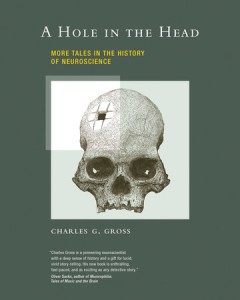
A hole in the head : More Tales in the History of Neuroscience
Essays on great figures and important issues, advances and blind alleys-from trepanation to the discovery of grandmother cells-in the history of brain sciences.
- Edition
- -
- ISBN/ISSN
- -
- Collation
- 1 online resource (x, 356 pages) : illustrations
- Series Title
- -
- Call Number
- -
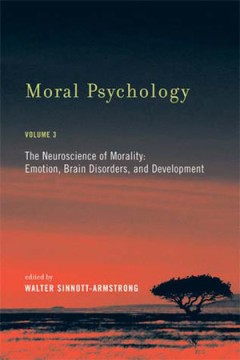
Moral psychology, The Neuroscience of Morality: Emotion, Brain Disorders, and…
"For much of the twentieth century, philosophy and science went their separate ways. In moral philosophy, fear of the so-called naturalistic fallacy kept moral philosophers from incorporating developments in biology and psychology. Since the 1990s, however, many philosophers have drawn on recent advances in cognitive psychology, brain science, and evolutionary psychology to inform their work. T…
- Edition
- -
- ISBN/ISSN
- -
- Collation
- -
- Series Title
- -
- Call Number
- -

Neurophilosophy of free will :from libertarian illusions to a concept of natu…
"A Bradford book."Walter applies the methodology of neurophilosophy to one of philosophy's central challenges, the notion of free will. Neurophilosophical conclusions are based on, and consistent with, scientific knowledge about the brain and its functioning.Neuroscientists routinely investigate such classical philosophical topics as consciousness, thought, language, meaning, aesthetics, and de…
- Edition
- -
- ISBN/ISSN
- 9780262285759
- Collation
- 1 online resource (xiii, 391 pages)
- Series Title
- -
- Call Number
- -
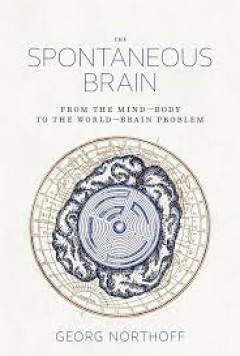
The Spontaneous Brain: From the Mind–Body to the World–Brain Problem
An argument for a Copernican revolution in our consideration of mental features -- a shift in which the world-brain problem supersedes the mind-body problem. Philosophers have long debated the mind-body problem -- whether to attribute such mental features as consciousness to mind or to body. Meanwhile, neuroscientists search for empirical answers, seeking neural correlates for consciousness, se…
- Edition
- -
- ISBN/ISSN
- 9780262346962
- Collation
- 1 online resource (xxvi, 506 pages) :illustrations
- Series Title
- -
- Call Number
- -
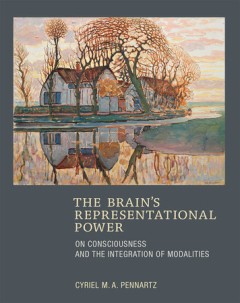
The Brain's Representational Power: On Consciousness and the Integration of M…
Although science has made considerable progress in discovering the neural basis of cognition, how consciousness arises remains elusive. In this book, Pennartz analyzes which aspects of conscious experience can be peeled away to access its core: the relationship between brain processes and the qualitative nature of consciousness. Pennartz traces the problem back to its historical foundations and…
- Edition
- -
- ISBN/ISSN
- 9780262330121
- Collation
- 1 online resource (xi, 382 pages, 12 unnumbered pages of plates) :illustrations (some color)
- Series Title
- -
- Call Number
- -
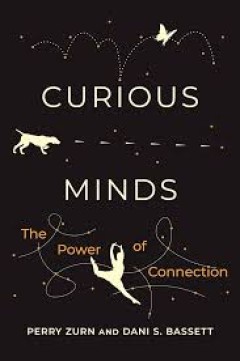
Curious Minds: The Power of Connection
"In Curious Minds: The Power of Connection, the authors explore what curiosity is and what it can do. Traipsing across the fields of philosophy and neuroscience, literature and network science, they discover that current definitions of curiosity are remarkably limited. Rather than think of curiosity as a drive to acquire new bits of information, they argue that curiosity is a practice of connec…
- Edition
- -
- ISBN/ISSN
- 0262370301
- Collation
- 1 online resource.
- Series Title
- -
- Call Number
- -
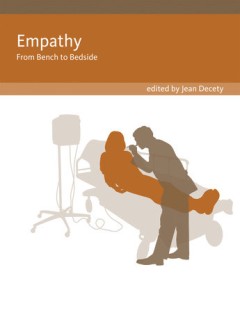
Empathy: From Bench to Bedside
Recent work on empathy theory, research, and applications, by scholars from disciplines ranging from neuroscience to psychoanalysis.OCLC-licensed vendor bibliographic record.
- Edition
- -
- ISBN/ISSN
- 9780262298612
- Collation
- 1 online resource (ix, 324 pages) :illustrations.
- Series Title
- -
- Call Number
- -

Moral psychology
Groundbreaking essays and commentaries on the ways that recent findings in psychology and neuroscience illuminate virtue and character and related issues in philosophy.Philosophers have discussed virtue and character since Socrates, but many traditional views have been challenged by recent findings in psychology and neuroscience. This fifth volume of Moral Psychology grows out of this new wave …
- Edition
- -
- ISBN/ISSN
- 9780262337281
- Collation
- 1 online resource (4 volumes) :illustrations
- Series Title
- -
- Call Number
- -
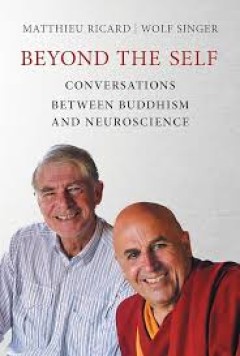
Beyond the self :conversations between Buddhism and neuroscience
Converging and diverging views on the mind, the self, consciousness, the unconscious, free will, perception, meditation, and other topics.OCLC-licensed vendor bibliographic record.
- Edition
- -
- ISBN/ISSN
- 9780262343022
- Collation
- 1 online resource (x, 282 pages)
- Series Title
- -
- Call Number
- -
 Computer Science, Information & General Works
Computer Science, Information & General Works  Philosophy & Psychology
Philosophy & Psychology  Religion
Religion  Social Sciences
Social Sciences  Language
Language  Pure Science
Pure Science  Applied Sciences
Applied Sciences  Art & Recreation
Art & Recreation  Literature
Literature  History & Geography
History & Geography